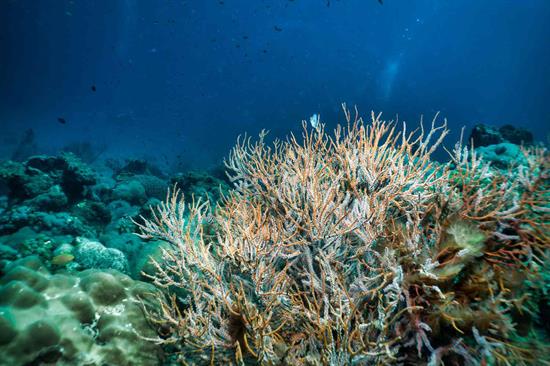Press Releases
Reps. Pingree, Waltz Introduce Bipartisan Bill to Support Coastal Communities Impacted by Ocean AcidificationThe Coastal Communities Ocean Acidification Act of 2023 would require NOAA to collaborate with state, local, and tribal government entities on ocean acidification vulnerability assessments, research planning, and information sharing
Washington,
January 31, 2023
Congresswoman Chellie Pingree (D-Maine) today introduced bipartisan legislation with Congressman Michael Waltz (R-Fla.) to support coastal communities grappling with ocean acidification driven by human activities. The bipartisan Coastal Communities Ocean Acidification Act of 2023 (H.R. 9346) would direct the National Oceanic and Atmospheric Administration (NOAA) to support the current efforts of coastal communities, particularly those who are underserved and rural, that are already facing the impacts of ocean acidification and better equip them with the resources to respond. “From threatening our commercial shellfisheries in the Gulf of Maine to declining corals off the Great Barrier Reef, the consequences of disrupting the chemical balance of ocean coastal waters are devastating across the globe. A 2020 report found that in the U.S., particularly in the waters off Maine and Massachusetts, ocean acidification hotspots could lead to economic losses of $400 million a year by 2100,” said Pingree. “My bipartisan legislation will address the growing and far-reaching threat of ocean acidification to help ensure that our ocean industries, including fisheries, and the communities that depend on them, are more resilient to our changing oceans.” “Florida’s waterways are essential to our economic growth and prosperity,” Waltz said. “As Floridians, we have experienced firsthand the devastating effects of agal blooms and red tides on our coastal communities. Moving forward, we must work to better understand the connection between ocean acidification and increased toxicity in harmful agal blooms to help us prevent them altogether. From stakeholders to independent groups and local, state, and federal governments, it is essential that we collaborate together on this issue to protect Florida’s waterways.” Ocean acidification is linked to an increase in carbon dioxide levels because our oceans, a critical natural carbon sink, absorb around a quarter of anthropogenic carbon dioxide emissions from the atmosphere each year. Since the start of the Industrial Revolution, our oceans have become 30% more acidic—and could experience increases up to 150% by the end of the century—creating challenging growing conditions for marine organisms, particularly those with calcium carbonate shells. Pingree has introduced legislation to study ocean acidification throughout her congressional tenure, which unanimously passed in the House in 2019. In the 116th Congress, portions of the Coastal Communities Ocean Acidification Act passed as part of S. 914, the Coordinated Ocean Observations and Research Act. Most significantly, S. 914 included a provision directing NOAA to conduct an economic vulnerability report every six years to examine gaps in ocean acidification monitoring, including identifying geographic areas, marine resources, and coastal communities that may be impacted. The Coastal Communities Ocean Acidification Act of 2023 updates the bill’s remaining provisions to ensure that NOAA collaborates with and supports state, local, and tribal entities who are already conducting ocean acidification activities, such as those playing a critical role in Maine. This bill includes the remaining provisions that target NOAA’s support, through improved collaboration and information sharing, to the many coastal communities that are actively working to combat ocean and coastal acidification. Particularly, the inclusion of Indian Tribes within the Ocean Acidification Advisory Board ensures the participation and engagement from a comprehensive range of affected stakeholders that are critical to ocean acidification research and mitigation efforts. The Coastal Communities Ocean Acidification Act of 2023 would:
### |

